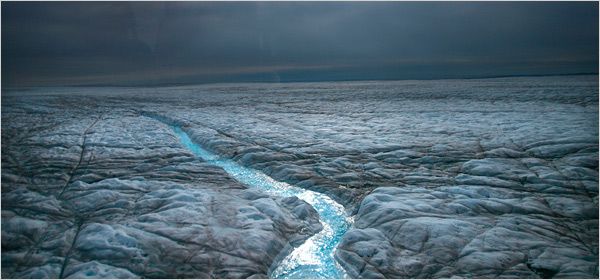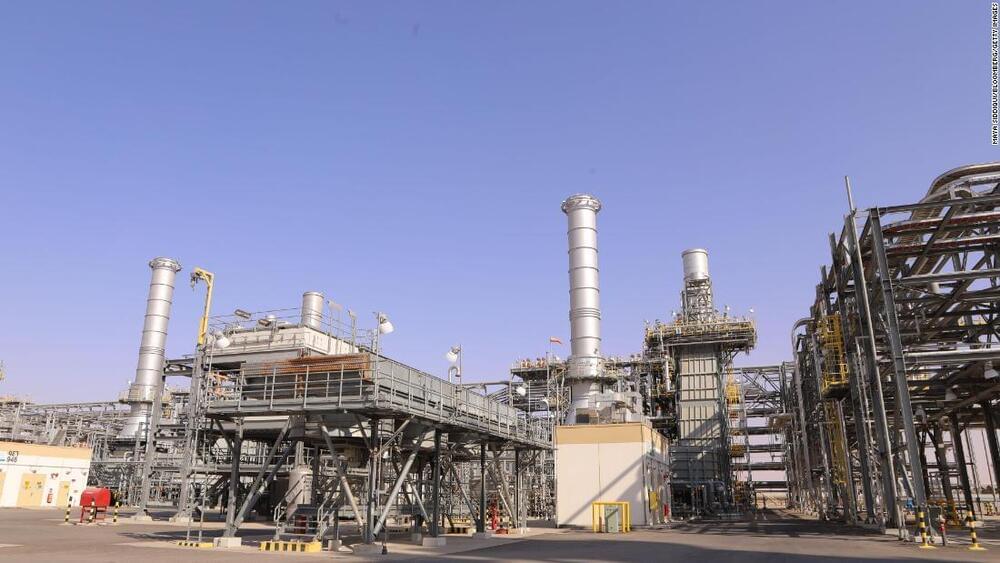Jan 8, 2008
Accelerating Greenland Melting “Shocks” Scientists
Posted by Oliver Starr in categories: biological, sustainability
 The New York Times is reporting today that the continued acceleration of the rate at which the Greenland ice sheets are melting has scientists scrambling for answers. In particular, a combination of changes has the glaciologists particularly concerned. They say the accumulation of meltwater on the surface of the ice in the form of ponds and streams absorbs as much as four times more heat than the lighter-colored ice, thereby accelerating the surface’s rate of melting.
The New York Times is reporting today that the continued acceleration of the rate at which the Greenland ice sheets are melting has scientists scrambling for answers. In particular, a combination of changes has the glaciologists particularly concerned. They say the accumulation of meltwater on the surface of the ice in the form of ponds and streams absorbs as much as four times more heat than the lighter-colored ice, thereby accelerating the surface’s rate of melting.
Additionally, this meltwater eventually finds its way to bedrock, where it appears to slightly lubricate the surface between ice and rock, facilitating more rapid ice shifting towards the ocean. A third factor in the trifecta is the breakup of substantial semi-submerged clots of ice that typically block narrow fjords. As these blockages break up, the flow of the frozen glacial rivers accelerates.
While there is still a tremendous amount about this cycle that remains undiscovered, what is clear is that the best estimates to date have fallen far short in terms of the speed at which these rare environments are changing. Although questions remain about how much of these changes are cyclical and how much is due precisely to man-originated global warming, we must gain a more complete understanding of these events so that we can take whatever steps we must to ameliorate any damage we’ve caused before the situation becomes so critical that massive changes come about as a result of our negligent handling of our environment.









